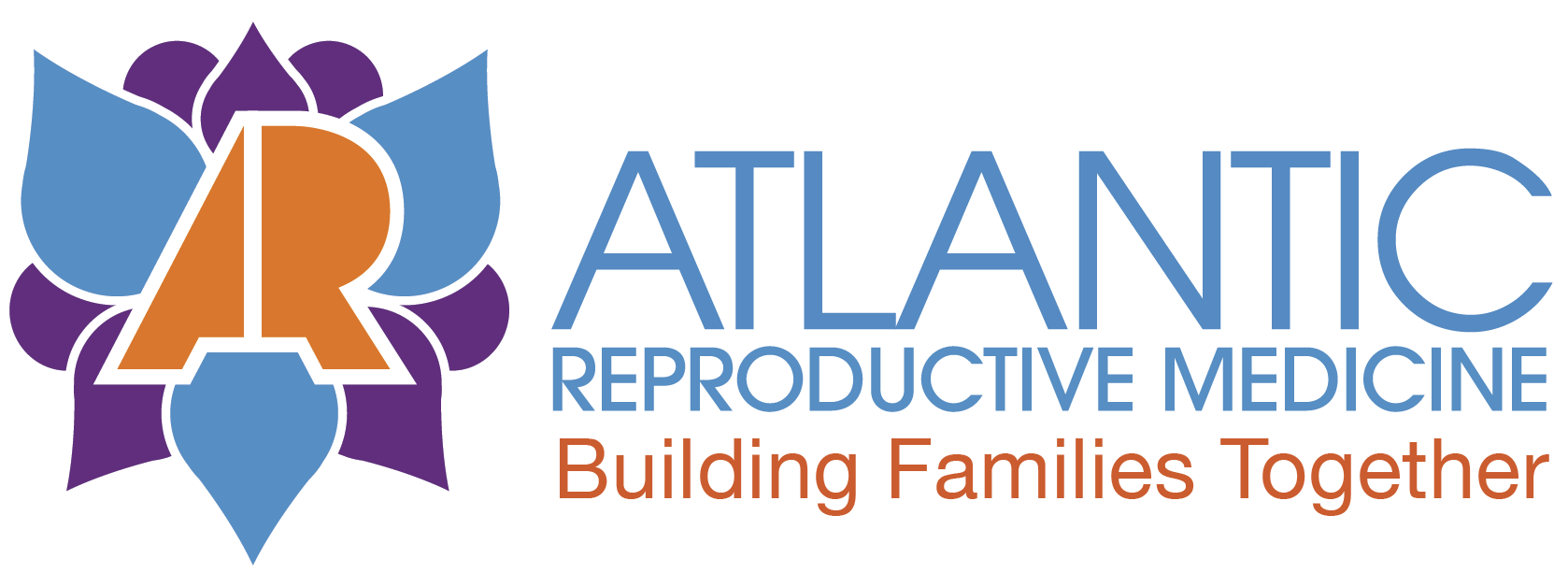In Vitro Fertilization
Helping families grow with personalized fertility care
Many individuals and couples across the Raleigh area turn to in vitro fertilization (IVF) to grow their families. They choose Atlantic Reproductive Medicine when looking for experienced, compassionate care. Our expert fertility specialists guide patients through every step of IVF, tailoring treatment to their unique needs.
What is IVF Treatment & How Does IVF Work?
In vitro fertilization (IVF) is one of the most effective fertility treatments available. It involves fertilizing eggs with sperm outside the body, then transferring an embryo to the uterus to establish a pregnancy.
Here’s a step-by-step overview of the IVF process:
1. Ovarian Stimulation
You’ll take medications to stimulate the ovaries to grow multiple follicles. The goal is to produce as many mature eggs as possible in one cycle to increase the chances of success.
2. Egg Retrieval
When your eggs are ready, our medical team performs a minor outpatient procedure to retrieve them using a thin needle under ultrasound guidance. You’ll be given IV sedation so you are sleeping, comfortable, and breathing on your own.
3. Insemination & Fertilization
In our embryology lab, your eggs are fertilized using sperm from your partner or a donor. Options for fertilization include conventional insemination and intracytoplasmic sperm injection (ICSI) — where a single sperm is injected directly into each egg to maximize fertilization.
4. Embryo Development & Transfer
After fertilization, embryos are grown in the lab for 5 to 6 days until they reach the blastocyst stage. At that point, a fresh embryo transfer may be performed, where a blastocyst is placed directly into the uterus during the same cycle. Alternatively, embryos can be frozen and preserved for a future frozen embryo transfer (FET).
Watch this video to learn what you need to do before your Nurse Coordination IVF Appointment:
What to Expect: IVF Side Effects
Most patients tolerate IVF well. Common side effects can include:
- Mild bloating or cramping
- Headaches
- Temporary mood changes related to hormone medications
If you experience more serious symptoms — such as rapid weight gain, severe abdominal pain, nausea, or shortness of breath — contact your care team right away. These may be signs of ovarian hyperstimulation syndrome (OHSS), a rare but treatable complication.
When Is IVF Recommended?
IVF may be recommended if you’re experiencing:
- Ovulation disorders
- Tubal blockage or damage
- Endometriosis
- Male factor infertility (sperm count, motility, or morphology concerns)
- Unexplained Infertility
- Difficulty conceiving despite attempting alternative fertility treatments
It’s also a powerful option for:
- Fertility preservation (e.g., prior to cancer treatment)
- Preimplantation genetic testing (PGT) for inherited conditions
- LGBTQ+ family building or single-parent conception
IVF Success Rates
IVF success depends on several factors, including:
- Age and ovarian reserve
- Cause of infertility
- Lifestyle and health history
You can estimate your individual success rates using the SART IVF Success Estimator — a helpful tool backed by national data.
IVF Cost & Financial Options
IVF costs vary based on your treatment plan, medications, and insurance coverage. Our team will help you understand your options and connect you with financial counselors if needed.
Ready to Take the Next Step?
We’re proud to offer trusted, high-quality IVF treatment to patients from Raleigh, Durham, Cary, Chapel Hill, Wake Forest, and beyond. Schedule your consultation with our fertility specialists today — we’re here to help you move forward with confidence and care.
